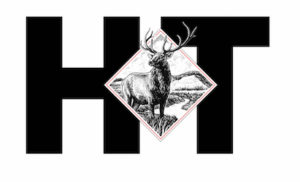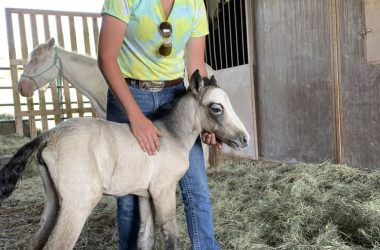RBC I While we all enjoy seeing wild/feral horses roam free on the range from time to time, BLM is required by law to appropriately manage the land for multiple uses. Multiple use is defined in the Federal Land Policy and Management Act (FLPMA) as, “the management of public lands and their various resource values so that they are utilized in the combination that best meets the present and future needs of the American people.” Multiple use includes recreation, energy development, livestock grazing, wild/feral horses, wildlife, forestry, etc. BLM develops a Resource Management Plan (RMP) to govern all resources at the “field office” level of its organization.
Public understanding of factual and balanced information is important. BLM is required to develop RMP with scientifically based information and public input. Within the RMP, BLM must determine the Appropriate Management Levels (AML) which identifies how many horses each Herd Area and Herd Management Area can sustain while “maintaining a thriving natural ecological balance on public lands.” The RMP is typically in place for 20 years and during that time BLM is required to be in compliance with their RMP. The West Douglas Herd Area’s AML states zero horses because the land cannot sustain horses and maintain a thriving natural ecological balance in that area.
The Wild Free-Roaming Horse and Burro Act (WFRHBA) of 1971 was passed because some believed the wild/feral horses and burros were “fast disappearing from the American scene.” A few years later it was amended because of an overpopulation problem that remains today. According to BLM’s count, there are nearly 12,000 animals — 45 percent — more than the number identified as scientifically sustainable (BLM 2010). BLM has chosen to publish only the number of horses they can visually count. It would be impossible to actually see every horse in rough terrain such as that found in northwest Colorado. Therefore, the numbers are well understated.
BLM’s 20 percent population growth figure is well-documented as an average. In some areas that are significantly overpopulated — where feed and water have become scarce — it is likely there would be a much lower survival rate for foals and increased death rates for older horses.
The WFRHBA specifies that where the Secretary of Interior determines “that an overpopulation exists on a given area of the public lands and that action is necessary to remove excess animals, he shall immediately remove excess animals from the range so as to achieve appropriate management levels.”
Conservationists, sportsmen, agriculturalist, environmentalists, wildlife enthusiasts and other groups recognize the devastating effects of not managing wild/feral horse herds.
“Caught squarely in the middle of this debate – and far out of the limelight – are the native fish and wildlife resources that are often seriously impacted or directly threatened by horse overpopulation.” (The Wildlife Professional, Jim Jeffress and Paul Roush)
Wild/feral horses are aggressive animals that run wildlife and livestock off of limited water and feed. Range damage is most significant around riparian systems. We have seen riparian areas in Rio Blanco County where the horses have depleted them to the point they look like sand dunes. There were no signs of wildlife other than coyotes near that riparian area and yet locals report that several years ago there were deer and elk using the area. There is little to no vegetation within 30-50 feet of the water. This causes soil erosion and water quality concerns. Horse overpopulation is also damaging to sagebrush that threatened sage-grouse species depend upon.
Horses are very destructive to the environment. They have different grazing habits than other range animals. They have teeth on the top and bottom jaws which allow them to bite off grass at dirt level where cattle and sheep only have teeth on the lower jaw and cannot bite grass off that low. Unlike sheep and cattle, horses have large flat hooves which cause soil compaction making it more difficult for grass to grow. When grass becomes scarce, a horse will paw the ground digging up the grass by the roots. This permanently removes that plant from the range and destroys the diversity of the range. All of this activity creates an environment for the spread of noxious weeds across the range.
BLM manages all other aspects of the range to maintain a thriving natural ecological balance and for multiple uses. Wildlife is managed through hunting, livestock through Animal Units per Month (AUMs) and rotational grazing, recreation activities through specifying where and when the activities may occur, forest health through logging and fire, all for the benefit of the natural resources and multiple uses. BLM is required to manage wild/feral horses by removing excess horses (the number of horses above AML) from the range for the same purpose.
BLM had planned to gather the excess horses in the West Douglas Herd Area, North Piceance Herd Area, and Piceance-East Douglas Herd Management Area last fall. However, they were only successful in gathering the North Piceance Herd Area due to horse activists’ lawsuits and potential lawsuits.
Each time the BLM spends thousands of dollars to planning a gather, special interest groups file suit to stop the gathers. Horse activist are using the Equal Access to Justice Act (EAJA) to get paid to sue the federal government. When the special interest group wins a case, their legal fees are paid with your tax dollars. Often times they win the case on a technicality or the government settles out of court. EAJA causes the government to have to pay these groups’ inflated legal fees when the plaintiffs win the case or it is settled out of court. This funding provides them seed money to file suit on the next gather. When these groups were successful in stopping the gather of the West Douglas Herd Area in 2009, they were awarded $40,000 from the government in “attorney’s fees and costs.” Yes, your tax dollars were paid to these groups who sued BLM for trying to do what the laws intended them to do.
In many cases, it appears that the BLM is finding themselves managing to avoid lawsuits rather than for their legal mandate of “multiple use” and “maintaining a thriving natural ecological balance on public lands.”
White River and Douglas Creek Conservation Districts.




















